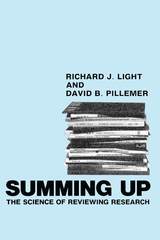
The bombing of Pearl Harbor, the assassination of President Kennedy, the explosion of the space shuttle Challenger: every generation has unforgettable events, the shared memory of which can create fleeting intimacy among strangers. These public memories, combined with poignant personal moments--the first day of college, a baseball game with one's father, praise from a mentor--are the critical shaping events of individual lives.
Although experimental memory studies have long been part of empirical psychology, and psychotherapy has focused on repressed or traumatizing memories, relatively little attention has been paid to the inspiring, touching, amusing, or revealing moments that highlight most lives. What makes something unforgettable? How do we learn to share the significance of memories?
David Pillemer's research, brought together in this gracefully written book, extends the current study of narrative and specific memory. Drawing on a variety of evidence and methods--cognitive and developmental psychology, cross-cultural study, psychotherapy case studies, autobiographies and diaries--Pillemer elaborates on five themes: the function of memory; how children learn to construct and share personal memories; memory as a complex interactive system of image, emotion, and narrative; individual and group differences in memory function and performance; and how unique events linger in memory and influence lives. A provocative last chapter, full of striking examples, considers potential variations in memory across gender, culture, and personality. Momentous Events, Vivid Memories is itself a compelling and memorable book.

How can a scientist or policy analyst summarize and evaluate what is already known about a particular topic? This book offers practical guidance.
The amount and diversity of information generated by academic and policy researchers in the contemporary world is staggering. How is an investigator to cope with the tens or even hundreds of studies on a particular problem? How can conflicting findings be reconciled? Richard Light and David Pillemer have developed both general guidelines and step-by-step procedures that can be used to synthesize existing data. They show how to apply quantitative methods, including the newest statistical procedures and simple graphical displays, to evaluate a mass of studies and combine separate data sets. At the same time, they insist on the value of qualitative information, of asking the right questions, and of considering the context in which research is conducted. The authors use exemplary reviews in education, psychology, health, and the policy sciences to illustrate their suggestions.
Written in nontechnical language and addressed to the beginning researcher as well as to the practicing professional, Summing Up will set a new standard for valid research reviews and is likely to become a methodological classic.
READERS
Browse our collection.
PUBLISHERS
See BiblioVault's publisher services.
STUDENT SERVICES
Files for college accessibility offices.
UChicago Accessibility Resources
home | accessibility | search | about | contact us
BiblioVault ® 2001 - 2024
The University of Chicago Press









